On October 2, CNN reported that Iranian Foreign Minister Abbas Araghchi declared that countries that help block missiles aimed at Israel will “be held responsible.” Tensions in the Middle East escalated after Iran launched hundreds of missiles toward Israeli territory on the night of October 1 and Israeli Prime Minister Benjamin Netanyahu warned of retaliation.
Diplomatic efforts
Abbas Araghchi's statement is said to be aimed at Jordan, the US and the UK, countries that are involved in defending Israel. The Iranian foreign minister affirmed that the airstrikes on Israeli territory were carried out within the framework of Iran's legitimate right to self-defense and based on international law.
Also on October 2, France announced that it had sent more troops to the Middle East and requested a meeting of the United Nations Security Council (UNSC) after Iran launched a missile towards Israeli territory. France also sent Foreign Minister Jean-Noel Barrot to the Middle East to promote diplomatic efforts. French Foreign Minister Jean-Noel Barrot also discussed this issue with his US counterpart Antony Blinken.
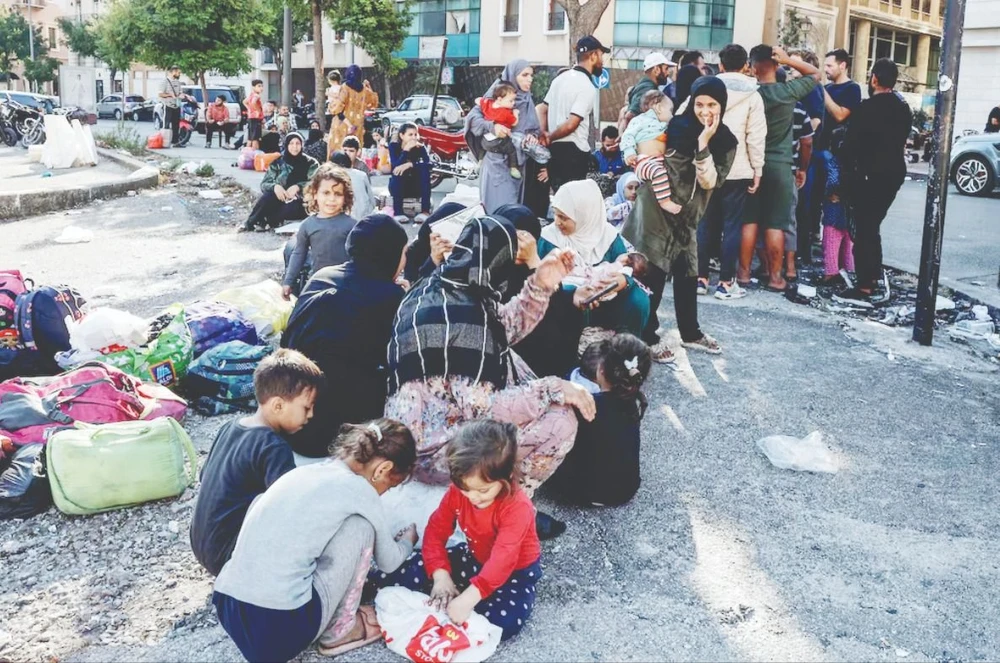
In a statement issued after an emergency cabinet meeting on tensions in the Middle East, the French President's Office called on Lebanon's Hezbollah movement to end its actions against Israel. Meanwhile, a White House statement said US President Joe Biden had instructed the US military to help prevent missile attacks on Israel - a key US ally.
In Russia, Foreign Minister Sergey Lavrov called on all parties involved in the conflict to exercise restraint and prevent the situation from worsening. Italian Prime Minister Giorgia Meloni announced that he would chair a video conference of leaders of the Group of Seven (G7) industrialized nations to discuss the crisis in the Middle East.
Earlier, on October 1, the Israeli military (IDF) called on civilians in more than 20 areas in southern Lebanon to evacuate, a few hours after officially starting a limited ground offensive against Hezbollah targets there. That same evening, local time, the IDF announced that about 180 missiles of various types were fired towards the country's territory, but the IDF had intercepted a "large number".
Writing on social network X on October 2, former Israeli Prime Minister Naftali Bennett called for a decisive attack to destroy Iran's nuclear infrastructure. In the context of escalating tensions in the Middle East, many countries have called on their citizens to leave Iran immediately.
Condemning Israel's aggression in Lebanon
On October 2, many world leaders also called on Iran and Israel to exercise restraint and avoid pushing the entire Middle East region into a full-scale conflict, while also condemning Israel's dangerous escalation in southern Lebanon.
In a press release, French President Emmanuel Macron called on Israel to end its military operations in Lebanon and expressed his hope that Lebanon's sovereignty and territorial integrity would be restored in strict compliance with UN Security Council Resolution 1701. The Egyptian government has rejected any attempt to impose a "new situation" that violates Lebanon's sovereignty.
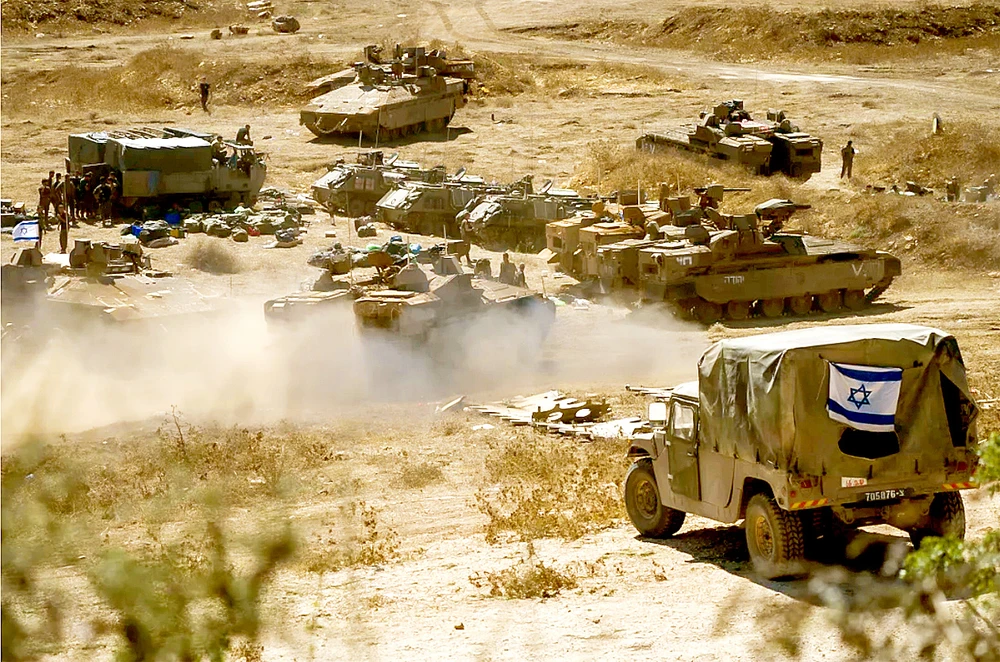
The Malaysian Ministry of Foreign Affairs stated that the actions of the Zionist Israeli regime violate the security, stability, sovereignty and territorial integrity of Lebanon, and violate the UN Charter and international law. Malaysia expressed solidarity with Lebanon and joined the international community's call for an urgent ceasefire to prevent the humanitarian disaster in Lebanon.
After Iran launched a series of missiles at positions in Israel, world oil prices increased by about 3% in the trading session on October 1. At the end of the trading session, the price of North Sea Brent crude oil increased by 1.86 USD, or 2.6%, to 73.56 USD/barrel. Meanwhile, the price of US light sweet crude oil (WTI) increased by 1.66 USD, equivalent to 2.4%, to 69.83 USD/barrel.
According to Clay Seigle, a political risk strategist, Iranian oil production and export facilities are likely to be targeted by Israeli retaliatory strikes, which could cause a major disruption to oil supplies and potentially reduce Iran’s production by more than 1 million barrels per day.
Tamas Varga, an analyst at brokerage and consultancy PVM, said that in the event of an escalation, there could be attacks on oil-producing countries in the Middle East such as Saudi Arabia. The market is really worried about the impact on oil supplies and this sentiment will dominate trading activities.
Meanwhile, in the Red Sea, Houthi forces in Yemen have claimed responsibility for attacking two ships off the port of Hodeidah, damaging one.
Synthesized HINGED CHI
Source: https://www.sggp.org.vn/trung-dong-truoc-nguy-co-xung-dot-toan-dien-post761819.html



![[Photo] The 1st Congress of Phu Tho Provincial Party Committee, term 2025-2030](https://vphoto.vietnam.vn/thumb/1200x675/vietnam/resource/IMAGE/2025/9/30/1507da06216649bba8a1ce6251816820)
![[Photo] Solemn opening of the 12th Military Party Congress for the 2025-2030 term](https://vphoto.vietnam.vn/thumb/1200x675/vietnam/resource/IMAGE/2025/9/30/2cd383b3130d41a1a4b5ace0d5eb989d)
![[Photo] General Secretary To Lam receives US Ambassador to Vietnam Marc Knapper](https://vphoto.vietnam.vn/thumb/1200x675/vietnam/resource/IMAGE/2025/9/29/c8fd0761aa184da7814aee57d87c49b3)
![[Photo] General Secretary To Lam, Secretary of the Central Military Commission attends the 12th Party Congress of the Army](https://vphoto.vietnam.vn/thumb/1200x675/vietnam/resource/IMAGE/2025/9/30/9b63aaa37ddb472ead84e3870a8ae825)



























![[Photo] General Secretary To Lam attends the ceremony to celebrate the 80th anniversary of the post and telecommunications sector and the 66th anniversary of the science and technology sector.](https://vphoto.vietnam.vn/thumb/1200x675/vietnam/resource/IMAGE/2025/9/29/8e86b39b8fe44121a2b14a031f4cef46)


























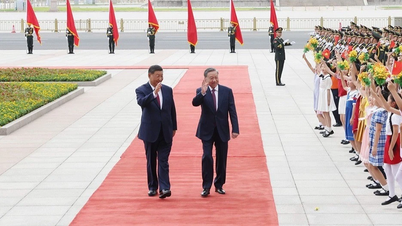

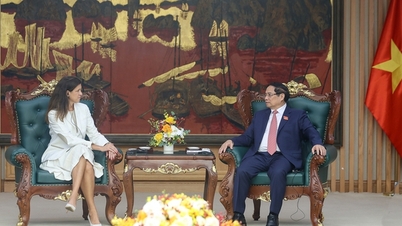

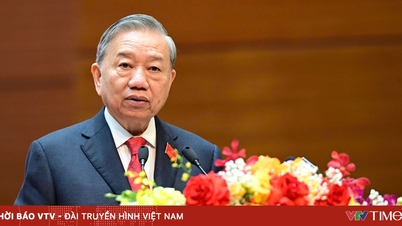



































Comment (0)